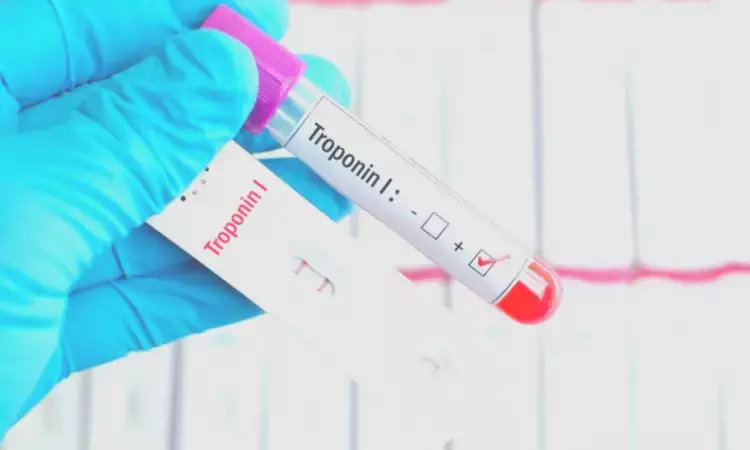- Home
- Medical news & Guidelines
- Anesthesiology
- Cardiology and CTVS
- Critical Care
- Dentistry
- Dermatology
- Diabetes and Endocrinology
- ENT
- Gastroenterology
- Medicine
- Nephrology
- Neurology
- Obstretics-Gynaecology
- Oncology
- Ophthalmology
- Orthopaedics
- Pediatrics-Neonatology
- Psychiatry
- Pulmonology
- Radiology
- Surgery
- Urology
- Laboratory Medicine
- Diet
- Nursing
- Paramedical
- Physiotherapy
- Health news
- Fact Check
- Bone Health Fact Check
- Brain Health Fact Check
- Cancer Related Fact Check
- Child Care Fact Check
- Dental and oral health fact check
- Diabetes and metabolic health fact check
- Diet and Nutrition Fact Check
- Eye and ENT Care Fact Check
- Fitness fact check
- Gut health fact check
- Heart health fact check
- Kidney health fact check
- Medical education fact check
- Men's health fact check
- Respiratory fact check
- Skin and hair care fact check
- Vaccine and Immunization fact check
- Women's health fact check
- AYUSH
- State News
- Andaman and Nicobar Islands
- Andhra Pradesh
- Arunachal Pradesh
- Assam
- Bihar
- Chandigarh
- Chattisgarh
- Dadra and Nagar Haveli
- Daman and Diu
- Delhi
- Goa
- Gujarat
- Haryana
- Himachal Pradesh
- Jammu & Kashmir
- Jharkhand
- Karnataka
- Kerala
- Ladakh
- Lakshadweep
- Madhya Pradesh
- Maharashtra
- Manipur
- Meghalaya
- Mizoram
- Nagaland
- Odisha
- Puducherry
- Punjab
- Rajasthan
- Sikkim
- Tamil Nadu
- Telangana
- Tripura
- Uttar Pradesh
- Uttrakhand
- West Bengal
- Medical Education
- Industry
Cutting-Edge Point-of-Care High-Sensitivity Cardiac Troponin Test Revolutionizes Acute MI Diagnosis: Study

Australia: In the ever-evolving landscape of medical diagnostics, a revolutionary advancement has emerged in acute myocardial infarction (AMI) detection. A groundbreaking study, published in the esteemed European Heart Journal, introduces a point-of-care (POC) high-sensitivity cardiac troponin (hs-cTn) test, poised to transform the diagnosis and management of suspected AMI.
A 2-h algorithm using a POC high-sensitivity cardiac troponin I (hs-cTnI) concentration enables efficient and safe risk assessment in patients with acute myocardial infarction. The short turnaround time of POC testing may support significant efficiencies in managing the large proportion of emergency patients with suspected AMI.
AMI, commonly known as a heart attack, remains a leading cause of morbidity and mortality worldwide, necessitating rapid and precise diagnostic strategies to facilitate prompt intervention and minimize adverse outcomes. Traditional cardiac troponin assays, while sensitive, often entail prolonged turnaround times and limited point-of-care accessibility, posing significant challenges in time-critical clinical settings.
The newly developed hs-cTn test promises to revolutionize AMI diagnosis by offering unprecedented sensitivity and rapidity in troponin detection. Unlike conventional assays, this point-of-care test enables healthcare providers to assess cardiac troponin levels directly at the patient's bedside, expediting diagnostic workflows and enabling timely therapeutic interventions.
Against the above background, Louise Cullen, The University of Queensland, Herston Road, Herston, Queensland, Australia, and colleagues derived and validated a 2-h POC hs-cTnI strategy for emergency patients with suspected AMI.
For this purpose, the researchers measured hs-cTnI (Siemens Atellica® VTLi) at admission and 2 h later in two international, multi-center, prospective, observational studies of adult emergency patients (1486 derivation cohort and 1796 validation cohort) with suspected AMI. Adjudicated final diagnoses used the hs-cTn assay in clinical use. A risk stratification algorithm was derived and validated.
The primary diagnostic outcome was index AMI (Types 1 and 2). The primary safety outcome was 30-day major adverse cardiac events (MACE) incorporating AMI and cardiac death.
The study led to the following findings:
- 5.5% and 4.9% of patients in the derivation and validation cohorts, respectively, had AMI.
- The 2-h algorithm defined 66.1% as low risk with a sensitivity of 98.8% and a negative predictive value of 99.9 for index AMI in the derivation cohort.
- In the validation cohort, 53.3% were low risk with a sensitivity of 98.9% and a negative predictive value of 99.9% for index AMI.
- The high-risk metrics identified 5.4% of patients with a specificity of 98.5% and a positive predictive value of 74.5% for index AMI.
"A 0/2 algorithm using a POC hs-cTnI assay is highly predictive and safe for evaluating patients with suspected AMI," the researchers wrote.
The findings suggest that short turnaround times of POC hs-cTnI testing may improve the management of patients with suspected AMI.
Reference:
Cullen, L., Greenslade, J., Parsonage, W., Stephensen, L., Smith, S. W., Sandoval, Y., Ranasinghe, I., Gaikwad, N., Khorramshahi Bayat, M., Mahmoodi, E., Schulz, K., Than, M., Apple, F. S., Brownlee, E., Fincher, G., Hall, E., Hancock, R., Gangathimmaiah, V., Keijzers, G., . . . Than, M. Point-of-care high-sensitivity cardiac troponin in suspected acute myocardial infarction assessed at baseline and 2 h. European Heart Journal. https://doi.org/10.1093/eurheartj/ehae343
Dr Kamal Kant Kohli-MBBS, DTCD- a chest specialist with more than 30 years of practice and a flair for writing clinical articles, Dr Kamal Kant Kohli joined Medical Dialogues as a Chief Editor of Medical News. Besides writing articles, as an editor, he proofreads and verifies all the medical content published on Medical Dialogues including those coming from journals, studies,medical conferences,guidelines etc. Email: drkohli@medicaldialogues.in. Contact no. 011-43720751


